MercoPress. South Atlantic News Agency
Agriculture
-
Sunday, June 21st 2009 - 11:26 UTC
Uruguayan farmers fearful of consolidation in meat sector
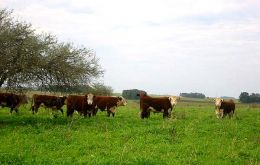
The possible merger between the leading Brazilian meat groups, Marfrig and JBS Bertin could create the largest corporation in the world and among other things dominate over 30% of the Uruguayan cattle demand market.
-
Thursday, June 18th 2009 - 14:54 UTC
Brazil invests 7.6 billion USD in family farming
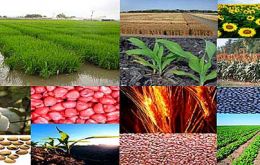
The Brazilian government confirmed Wednesday that the fund to promote home farming and gardening will have at its disposal 7.6 billion US dollars. This represents a 525% increase since the administration of President Lula da Silva took office in 2003.
-
Wednesday, June 10th 2009 - 07:55 UTC
Argentina will consume Uruguayan beef for bicentenary celebration
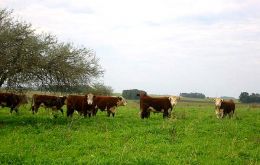
Argentina will celebrate its bicentenary consuming Uruguayan beef forecasted the president of the powerful farmers’ association Argentine Rural Society, Hugo Biolcati. Production won’t be enough to cover Argentina’s demand next year, “either we bring per capita consumption down from 70 kilos to 50 kilos, or we import beef and it won’t be cheap”.
-
Sunday, June 7th 2009 - 19:16 UTC
Chilean wine prices on sales to UK fall on average 31.2%
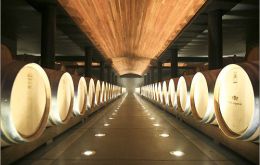
Chilean bottled wine prices fell an average of 14.6% on the international market in April, while the quantity of bottled exports increased by 5.2%, according to a recent report by industry advocacy group Wines of Chile.
-
Thursday, June 4th 2009 - 15:07 UTC
Buffaloes introduced in Cuba have become a threat for crops
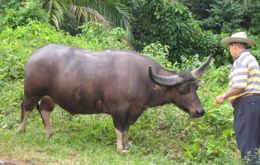
A herd of wild buffalo has become a nightmare for peasants in the western Cuban province of Pinar del Rio because the beasts are invading and devouring their crops of tobacco and vegetables, reports the Communist Party daily Granma.
-
Wednesday, June 3rd 2009 - 10:56 UTC
Argentine meat packers move to ensure supply with feedlots
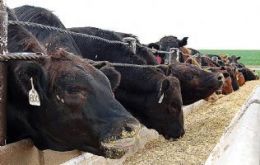
Quickfood one of Argentina’s main abattoirs is considering setting up two huge feedlots to fatten cattle, each with 22.000 steers, making it one of the leading companies in the industry
-
Thursday, May 28th 2009 - 07:20 UTC
Britain’s smelliest cheese named “Stinking Bishop”

Stinking Bishop has been officially voted Britain's most pungent cheese in the nation's first ever contest. Britain's Smelliest Cheese Championships were held at The Royal Bath and West Show in Shepton Mallet, Somerset.
-
Wednesday, May 20th 2009 - 14:55 UTC
Soy prices set to increase because of poor crops in South America
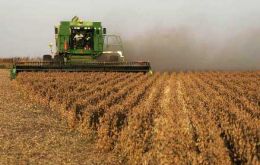
World stocks of soybeans are set to decline steeply to a five year low of around 50 million tons at the end of the season (10 million tons less than a year ago), mainly because of smaller crops in the leading exporting countries of South America, according to Oil World.
-
Wednesday, May 20th 2009 - 12:11 UTC
Argentine farmers look for profitable alternative crops

Argentine farmers are finding other crops which enable them to avoid the hyper sensitive wheat which has been one of the main clash areas with the administration of President Cristina Fernandez de Kirchner.
-
Sunday, May 17th 2009 - 12:52 UTC
Uruguayan rice crop with record yield of 8.012 kilos per hectare
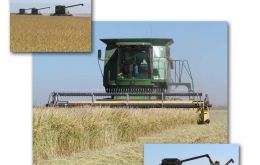
Uruguay’s rice 2009 crop is estimated in 1.3 million tons and although the area planted was 4.5% less that in 2008, yield is a record 8.012 kilos per hectare, according to the latest release from the Agriculture Statistics Department, DIEA.
